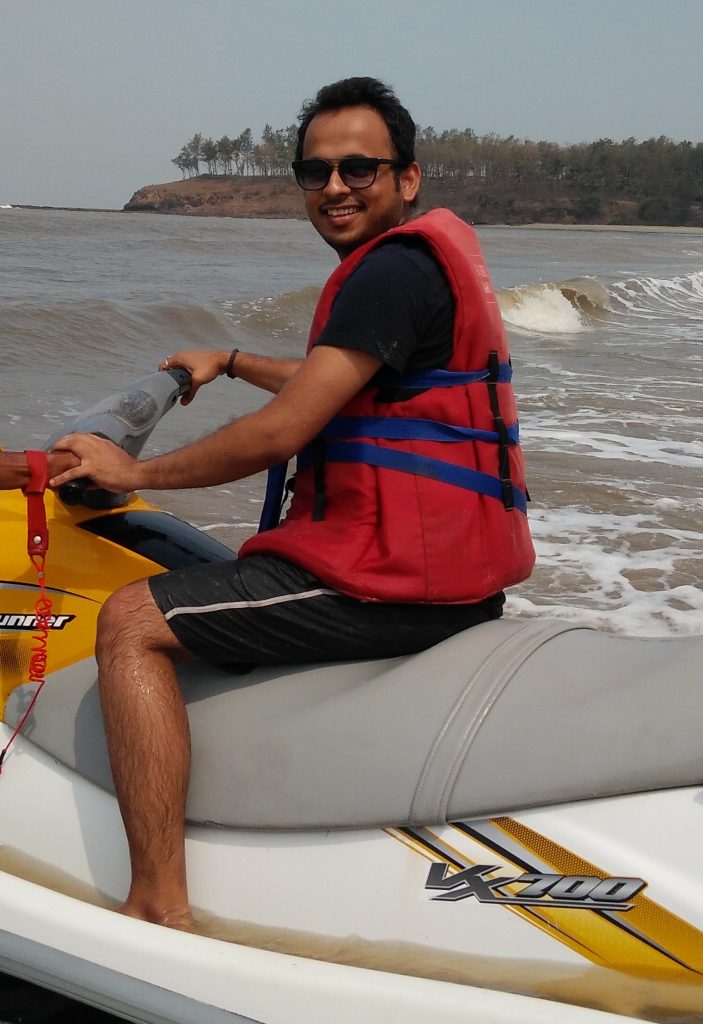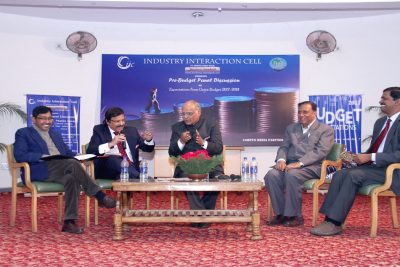While the nation eagerly awaits for the upcoming Union Budget, Industry Interaction Cell of IIM Lucknow decided to find out people's expectations from it. In the quest to do so, Industry Interaction Cell with event partner Business Standard hosted a Pre-Budget Panel Discussion on the 12th of January 2017. The panel consisted of eminent personalities from the field of journalism, industry, academia and public administration.

The event attracted students from various colleges across the city of Lucknow. The discussion began with an address from senior political journalist and Editor-in-Chief of The New Indian Express, Mr. Prabhu Chawla. True to his nature, Mr. Chawla began his speech on a lighter note, referring to the student community as ‘mitron’ in typical Modi style. He went on to critique the budget as something that was meant for the classes and not for the masses. Referring to the previous budgets, he lamented, “The budgets have been focussing only on India and not on Bharat.” He further added, “For India to enter the next phase of growth we need to move towards equality.” He highlighted that the top 1% of the people hold 61% of India’s wealth and how the government has been cutting the subsidies for the poor while increasing the incentives for the rich. Mr. Chawla ended his speech on a positive note hoping that the government would take more steps to boost demand and give more money in the hands of the common man.
Mr. Rakesh Nangia, Founder and Managing Partner, Nangia & Co. had some interesting numbers up his sleeves. He began his address by charting India’s economic growth and highlighting how it took the nation 60 years to become a trillion dollar economy and just seven years to add another trillion to it. “Even at a 7% growth rate till 2030, India would become the third largest economy in the world”, he added. However, Mr. Nangia’s had certain reservations regarding this. He was particularly concerned about the need to curb the booming parallel economy by reigning in more transparency and creating simpler laws. Mr. Nangia also stressed upon reducing corporate taxes to attract more investment.
Mr. N.R. Bhanumurthy, a former macroeconomist at UNESCAP, Bangkok brought a new perspective to the discussion. He expressed concerns over the shift from globalisation towards deglobalisation. “No one knows how this situation will evolve,” he added. Mr. Bhanumurthy ended his address by saying that in the light of such drastic global changes, India must move towards self-reliance.
Another panel member, MR. H.N Gupta, the former principal advisor to the Planning Commission, felt there was a need to address the issue of deficits. He said that it was natural for a developing economy to have deficits, but only if it creates more jobs. Like Mr. Nangia, he too expressed concerns over the menace of black money.
The discussion among panellists was followed by a Q&A with the students. A number of queries on demonetisation, e-payments, agriculture sector, Make In India, etc. were answered. While the discussion at IIM Lucknow concluded, India optimistically looks forward to the upcoming Union Budget!
----------------
About the Author:

"Samaksha Vaish is a first year student at IIM Lucknow. On campus, he is also a member of Industry Interaction Cell and Manjunath Shanmugam Trust."




